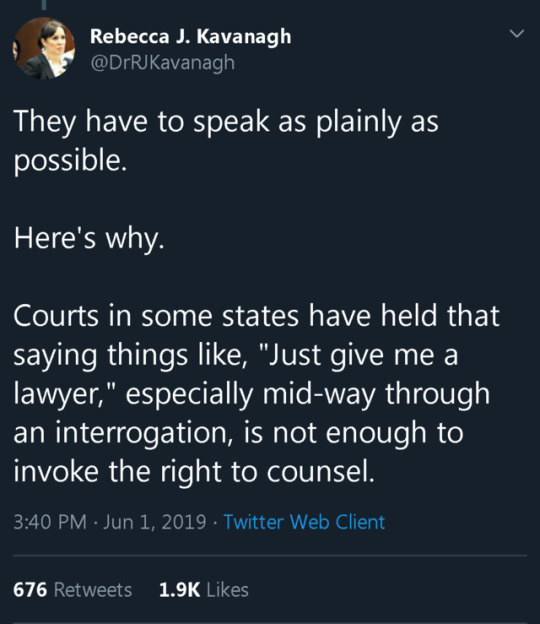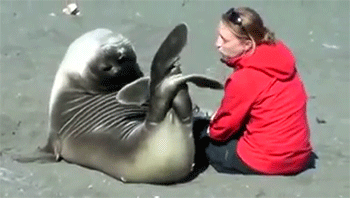Video
So beautiful!
undefined
tumblr
Clear waters of an Alaskan stream
87K notes
·
View notes
Photo



#don't talk to the police#am I free to go#I am invoking my rights to an attorney#I am invoking my rights to remain silent and I am invoking my rights to an attorney
386K notes
·
View notes
Photo

Melani's Writing Corner turned 6 today!
#tumblr birthday#tumblr milestone#happybirthday#birthday#happybirthdaytome#6thbirthday#melani's writing corner 6th birthday#melani's writing corner birthday#melani'swritingcorner6thbirthday#melani'swritingcornerbirthday
2 notes
·
View notes
Text
Mental Abuse In Children
Mental abuse in children can result in:
Relationship difficulties – emotional abuse leads to a lack of trust in the parent and this follows through the rest of the relationships in life. Without a positive early relationship on which to base others, emotionally abused children may choose not to have relationships or continually get into other abusive relationships because they don’t know what a non-abusive relationship is like.
Feelings of being worthless or damaged in some way – emotionally abused children are typically told they are no good so frequently that they come to believe it. This can lead to unfulfilling adult roles as the person feels they are not worth a good education or job.
Trouble regulating emotions – because emotionally abused children are often punished for expressing their emotions, they never learn how to express them in a reasonable, safe way. This leads to emotions coming out in unpredictable ways such as in anger, depression or anxiety.
#childabuse#child abuse#mentalabuse#mental abuse#childmentalabuse#child mental abuse#abuse in children#abuseinchildren#help#resultsofabuse#results of abuse
25 notes
·
View notes
Text
A Victims Lifelong Response After “Getting Away” From Abuser
🔹Panic anytime a phone number calls that isn’t in your contacts. Is it someone calling to confirm the doctor's appointment you have tomorrow, or is it Him?
🔹Wondering if the person at your door is the mailman or the end of the life you have managed to scrape together during your time recovering.
🔹 Is this person really a new blog/profile, or have they found you and are trying to catfish you?
🔹 “How did I sleep? Uhhhhhhhhh” *tries to think of something better than explaining the series of nightmares you had where you are killed* “hhhhhhhhhh fine.”
🔹 F!! L!! A!! S!! H!! B!! A!! C!! K!! S!!
🔹 Avoiding doing things you used to love because they were the first things about you that were picked apart by them.
🔹 Feeling guilty for not doing the things you used to love doing.
🔹 Feeling guilty for escaping.
🔹 Guilt!!!!
#abuse#emotional abuse#emotionalabuse#mentalabuse#mental abuse#physical abuse#physicalabuse#lifelongresponse#lifelong response#Guilt#fearofgod#terror
1 note
·
View note
Photo

#domesticviolence#domestic violence#abuse#partnerabuse#partner abuse#gaslight#gaslighting#womanabuse#woman abuse#psycholgicalabuse#psychological abuse#trigger
227 notes
·
View notes
Text
Domestic Violence/Rape Consequences Idea
Idea: if you are convicted of domestic violence or of rape, you lose all custody of any children. You also lose the ability to have any custody of future children. If you file for marriage, your spouse to be is furnished with the records of your offense. The spouse must sign that they have received these records before a marriage license is granted. Your domestic abuse or rape conviction will be printed on any official documents, including driver’s license and passport.
#domestic violence#domesticviolence#partner abuse#partnerabuse#abuse#rape#child abuse#childabuse#sexualabuse#sexual abuse#law ideas#lawideas
0 notes
Text
Hold Them Responsible
Your abuser could have gone through life without abusing you. This was an option all along. They didn’t have to hurt you, they didn’t have to be cruel, they didn’t have to declare themselves an authority on what is and isn’t good for you and decide that abuse is what you deserve. They didn’t have to manipulate you, they didn’t have to lie to you, they didn’t have to insult, criticize or humiliate you. They didn’t have to control you, they didn’t have to crush your self-confidence, they didn’t have to scare or hit or push or torture or gaslight you. They didn’t have to do any of it. They could have gone through their life without doing it. Nobody forced them to do it. It was their own decision to do those things. They are the sole person responsible for doing all of it. They would have lost nothing if they didn’t do those things. It wouldn’t take anything away from their life not to destroy yours. Hold. Them. Responsible.
#abuse#trigger#insult#manipulate#scare#control#gaslight#torture#doesticviolence#domestic violence#abusiveparnter#abusive partner
12 notes
·
View notes
Text
Bullying & Cyberbullying
The effects of bullying or cyberbullying can be devastating, leaving you feeling helpless, humiliated, angry, depressed, or even suicidal. And technology means that bullying is no longer limited to schoolyards or street corners. Cyberbullying can occur anywhere, even at home, via smartphones, emails, texts, and social media, 24 hours a day, with potentially hundreds of people involved. But no type of bullying should ever be tolerated. These tips can help you protect yourself or your child—at school and online—and deal with the growing problem of bullying and cyberbullying.
What is bullying?
Bullying is repeated aggressive behavior that can be physical, verbal, or relational, in-person or online. Bullies are often relentless, bullying over and over again for long periods of time. You may live in constant fear of where and when the bully will strike next, what they’ll do, and how far they’ll go.
Physical bullying – includes hitting, kicking, or pushing you (or even just threatening to do so), as well as stealing, hiding, or ruining your things, and hazing, harassment, or humiliation.
Verbal bullying – includes name-calling, teasing, taunting, insulting, or otherwise verbally abusing you.
Relationship bullying – includes refusing to talk to you, excluding you from groups or activities, spreading lies or rumors about you, making you do things you don't want to do.
Boys frequently bully using physical threats and actions, while girls are more likely to engage in verbal or relationship bullying.
What is cyberbullying?
Cyberbullying occurs when someone uses digital technology, such as the Internet, emails, text messages, or social media, to harass, threaten, or humiliate you. Unlike traditional bullying, cyberbullying doesn't require face-to-face contact and isn't limited to just a handful of witnesses at a time. It also doesn’t require physical power or strength in numbers.
Cyberbullies come in all shapes and sizes—almost anyone with an Internet connection or mobile phone can cyberbully someone else, often without having to reveal their true identity.
Cyberbullies can torment you 24 hours a day, seven days a week, and the bullying can follow you anywhere so that no place, not even home, ever feels safe. And with a few clicks the humiliation can be witnessed by hundreds or even thousands of people online.
The methods kids and teens use to cyberbully can be as varied and imaginative as the technology they have access to. It ranges from sending threatening or taunting messages via email, text, social media, or IM to breaking into your email account or stealing your online identity to hurt and humiliate you. Some cyberbullies may even create a website or social media page to target you.
As with face-to-face bullying, both boys and girls cyberbully, but tend to do so in different ways. Boys tend to bully by "sexting" (sending messages of a sexual nature) or with messages that threaten physical harm. Girls, on the other hand, more commonly cyberbully by spreading lies and rumors, exposing your secrets, or by excluding you from social media groups, emails, buddy lists and the like. Because cyberbullying is so easy to perpetrate, a child or teen can easily change roles, going from cyberbullying victim at one point to cyberbully the next, and then back again.
The effects of bullying and cyberbullying
Whether you’re being targeted by bullies or cyberbullies, the results are similar:
You’re made to feel hurt, angry, afraid, helpless, hopeless, isolated, ashamed, and even guilty that the bullying is somehow your fault. You may even feel suicidal.
Your physical health is likely to suffer, and you are at a greater risk of developing mental health problems such as depression, low self-esteem, anxiety, or adult onset PTSD.
You’re more likely to miss, skip, or drop out of school to avoid being bullied. In many cases, cyberbullying can be even more painful than face-to-face bullying because:
Cyberbullying can happen anywhere at any time, even in places where you normally feel safe, such as your home, and at times you'd least expect, such as at the weekend in the company of your family. It can seem like there's no escape from the taunting and humiliation.
A lot of cyberbullying can be done anonymously so you may not be sure who is targeting you. This can make you feel even more threatened and can embolden bullies, as they believe online anonymity means they're less likely to get caught. Since cyberbullies can't see your reaction, they will often go much further in their harassment or ridicule than they would do face-to-face with you.
Cyberbullying can be witnessed by potentially thousands of people. Emails can be forwarded to many, many people while social media posts or website comments can often be seen by anyone. The more far-reaching the bullying, the more humiliating it can become.
Bullying and Suicide
If bullying or cyberbullying means you, or someone you know, feels suicidal, please call 1-800-273-8255 in the U.S., or visit IASP or Suicide.org to find a helpline in your country.
5 notes
·
View notes
Text
Recognizing the warning signs that someone is being abused
Recognizing the warning signs that someone is being abused
It's impossible to know with certainty what goes on behind closed doors, but there are some telltale signs and symptoms of emotional abuse and domestic violence. If you witness these warning signs of abuse in a friend, family member, or co-worker, take them very seriously.
People who are being abused may:
Seem afraid or anxious to please their partner
Go along with everything their partner says and does
Check in often with their partner to report where they are and what they're doing
Receive frequent, harassing phone calls from their partner
Talk about their partner's temper, jealousy, or possessiveness
Warning signs of physical violence. People who are being physically abused may:
Have frequent injuries, with the excuse of “accidents”
Frequently miss work, school, or social occasions, without explanation
Dress in clothing designed to hide bruises or scars (e.g. wearing long sleeves in the summer or sunglasses indoors)
Warning signs of isolation. People who are being isolated by their abuser may:
Be restricted from seeing family and friends
Rarely go out in public without their partner
Have limited access to money, credit cards, or the car
The psychological warning signs of abuse. People who are being abused may:
Have very low self-esteem, even if they used to be confident
Show major personality changes (e.g. an outgoing person becomes withdrawn)
Be depressed, anxious, or suicidal
Speak up if you suspect domestic violence or abuse
If you suspect that someone you know is being abused, speak up! If you’re hesitating—telling yourself that it’s none of your business, you might be wrong, or the person might not want to talk about it—keep in mind that expressing your concern will let the person know that you care and may even save their life.
Talk to the person in private and let them know that you’re concerned. Point out the things you’ve noticed that make you worried. Tell the person that you’re there, whenever they feel ready to talk. Reassure the person that you’ll keep whatever is said between the two of you, and let them know that you’ll help in any way you can.
Remember, abusers, are very good at controlling and manipulating their victims. People who have been emotionally abused or battered are depressed, drained, scared, ashamed, and confused. They need help to get out, yet they’ve often been isolated from their family and friends. By picking up on the warning signs and offering support, you can help them escape an abusive situation and begin healing.
#help#domesticviolence#domestic violence#domesticabuse#domestic abuse#recognizethesigns#recognize the signs#abuse#partnerabuse#partner abuse
1 note
·
View note
Text
Abusive behavior is the abuser’s choice
Abusive behavior is the abuser’s choice
Despite what many people believe, domestic violence and abuse is not due to the abuser’s loss of control over their behavior. In fact, abusive behavior and violence is a deliberate choice made by the abuser in order to control you. Abusers use a variety of tactics to manipulate you and exert their power, including:
Dominance – Abusive individuals need to feel in charge of the relationship. They will make decisions for you and the family, tell you what to do, and expect you to obey without question. Your abuser may treat you like a servant, child, or even as their possession.
Humiliation – An abuser will do everything they can to make you feel bad about yourself or defective in some way. After all, if you believe you're worthless and that no one else will want you, you're less likely to leave. Insults, name-calling, shaming, and public put-downs are all weapons of abuse designed to erode your self-esteem and make you feel powerless.
Isolation – In order to increase your dependence on them, an abusive partner will cut you off from the outside world. They may keep you from seeing family or friends, or even prevent you from going to work or school. You may have to ask permission to do anything, go anywhere, or see anyone.
Threats – Abusers commonly use threats to keep their partners from leaving or to scare them into dropping charges. Your abuser may threaten to hurt or kill you, your children, other family members, or even pets. They may also threaten to commit suicide, file false charges against you, or report you to child services.
Intimidation – Your abuser may use a variety of intimidation tactics designed to scare you into submission. Such tactics include making threatening looks or gestures, smashing things in front of you, destroying property, hurting your pets, or putting weapons on display. The clear message is that if you don't obey, there will be violent consequences.
Denial and Blame – Abusers are very good at making excuses for the inexcusable. They will blame their abusive and violent behavior on a bad childhood, a bad day, or even on you and the kids, the victims of their abuse. Your abusive partner may minimize the abuse or deny that it occurred. They will commonly shift the responsibility on to you: Somehow, their violent and abusive behavior is your fault.
Abusers are able to control their behavior—they do it all the time
Abusers pick and choose whom to abuse. They don’t insult, threaten, or assault everyone in their life who gives them grief. Usually, they save their abuse for the people closest to them, the ones they claim to love.
Abusers carefully choose when and where to abuse. They control themselves until no one else is around to see their abusive behavior. They may act like everything is fine in public, but lash out instantly as soon as you’re alone.
Abusers are able to stop their abusive behavior when it benefits them. Most abusers are not out of control. In fact, they’re able to immediately stop their abusive behavior when it’s to their advantage to do so (for example, when the police show up or their boss calls).
Violent abusers usually direct their blows where they won’t show. Rather than acting out in a mindless rage, many physically violent abusers carefully aim their kicks and punches where the bruises and marks won’t show.
#abuse#abusive#dominance#humiliation#isolation#threats#intimidation#denial#blame#control#domesticabuse#domestic violence#domestic abuse#domesticviolence#abusive partner#abusivepartner#trigger#metoo#me too#help
9 notes
·
View notes
Text
Emotional/Verbal/Mental Abuse
You may be in an emotionally/verbally/Mentally abusive relationship if your partner exerts control through:
Calling you names, insulting you or continually criticizing you
Refusing to trust you and acting jealous or possessive
Trying to isolate you from family or friends
Monitoring where you go, who you call and who you spend time with
Demanding to know where you are every minute
Trapping you in your home or preventing you from leaving
Using weapons to threaten to hurt you
Punishing you by withholding affection
Threatening to hurt you, the children, your family or your pets
Damaging your property when they’re angry (throwing objects, punching walls, kicking doors, etc.)
Humiliating you in any way
Blaming you for the abuse
Gaslighting
Accusing you of cheating and being often jealous of your outside relationships
Serially cheating on you and then blaming you for his or her behavior
Cheating on you intentionally to hurt you and then threatening to cheat again
Cheating to prove that they are more desired, worthy, etc. than you are
Attempting to control your appearance: what you wear, how much/little makeup you wear, etc.
Telling you that you will never find anyone better, or that you are lucky to be with a person like them
#emotionalabuse#emotional abuse#verbalabuse#verbal abuse#mentalabuse#mental abuse#domesticabuse#domestic abuse#abuse#violenceagainstwomen#violence against women#help#victim#survivor
0 notes
Text
Digital Abuse is Abuse
Digital abuse is the use of technologies such as texting and social networking to bully, harass, stalk or intimidate a partner. Often this behavior is a form of verbal or emotional abuse perpetrated online. You may be experiencing digital abuse if your partner:
Tells you who you can or can’t be friends with on Facebook and other sites.
Sends you negative, insulting or even threatening emails, Facebook messages, tweets, DMs or other messages online.
Uses sites like Facebook, Twitter, foursquare and others to keep constant tabs on you.
Puts you down in their status updates.
Sends you unwanted, explicit pictures and demands you send some in return.
Pressures you to send explicit videos.
Steals or insists on being given your passwords.
Constantly texts you and makes you feel like you can’t be separated from your phone for fear that you will be punished.
Looks through your phone frequently, checks up on your pictures, texts and outgoing calls.
Tags you unkindly in pictures on Instagram, Tumblr, etc.
Uses any kind of technology (such spyware or GPS in a car or on a phone) to monitor you
You never deserve to be mistreated, online or off. Remember:
Your partner should respect your relationship boundaries.
It is ok to turn off your phone. You have the right to be alone and spend time with friends and family without your partner getting angry.
You do not have to text any pictures or statements that you are uncomfortable sending, especially nude or partially nude photos, known as “sexting.”
You lose control of any electronic message once your partner receives it. They may forward it, so don’t send anything you fear could be seen by others.
You do not have to share your passwords with anyone.
Know your privacy settings. Social networks such as Facebook allow the user to control how their information is shared and who has access to it. These are often customizable and are found in the privacy section of the site. Remember, registering for some applications (apps) require you to change your privacy settings.
Be mindful when using check-ins like Facebook Places and foursquare. Letting an abusive partner know where you are could be dangerous. Also, always ask your friends if it’s ok for you to check them in. You never know if they are trying to keep their location secret.
You have the right to feel comfortable and safe in your relationship, even online.
#digitalabuse#digital abuse#abuse#victim#domesticviolence#domestic violence#friend#family#bullying#staysafe#stay safe
0 notes
Text
Helping Domestic Violence Victim
Help a Friend or Family Member
Are you concerned that someone you care about is experiencing abuse? Maybe you’ve noticed some warning signs, including:
Their partner puts them down in front of other people
They are constantly worried about making their partner angry
They make excuses for their partner’s behavior
Their partner is extremely jealous or possessive
They have unexplained marks or injuries
They’ve stopped spending time with friends and family
They are depressed or anxious, or you notice changes in their personality
If someone you love is being abused, it can be so difficult to know what to do. Your instinct may be to “save” them from the relationship, but it’s not that easy. After all, there are many reasons why people stay in abusive relationships, and leaving can be a very dangerous time for a victim.
Abuse is about power and control, so one of the most important ways you can help a person in an abusive relationship is to consider how you might empower them to make their own decisions. Additionally, you can offer support in various ways:
ACKNOWLEDGE THAT THEY ARE IN A VERY DIFFICULT AND SCARY SITUATION, BE SUPPORTIVE AND LISTEN.
Let them know that the abuse is not their fault. Reassure them that they are not alone and that there is help and support out there. It may be difficult for them to talk about the abuse. Let them know that you are available to help whenever they may need it. What they need most is someone who will believe and listen.
BE NON-JUDGMENTAL.
Respect your friend or family member’s decisions. There are many reasons why victims stay in abusive relationships. They may leave and return to the relationship many times. Do not criticize their decisions or try to guilt them. They will need your support even more during those times.
IF THEY END THE RELATIONSHIP, CONTINUE TO BE SUPPORTIVE OF THEM.
Even though the relationship was abusive, your friend or family member may still feel sad and lonely once it is over. They will need time to mourn the loss of the relationship and will especially need your support at that time.
ENCOURAGE THEM TO PARTICIPATE IN ACTIVITIES OUTSIDE OF THE RELATIONSHIP WITH FRIENDS AND FAMILY.
Support is critical and the more they feel supported by people who care for them, the easier it will be for them to take the steps necessary to get and stay safe away from their abusive partner. Remember that you can call the hotline to find local support groups and information on staying safe.
HELP THEM DEVELOP A SAFETY PLAN.
Check out our information on creating a safety plan for wherever they are in their relationship — whether they're choosing to stay, preparing to leave, or have already left.
ENCOURAGE THEM TO TALK TO PEOPLE WHO CAN PROVIDE HELP AND GUIDANCE.
Find a local domestic violence agency that provides counseling or support groups. Call us at 1-800-799-SAFE (7233) to get a referral to one of these programs near you. Offer to go with them. If they have to go to the police, court or lawyer’s office, offer to go along for moral support.
REMEMBER THAT YOU CANNOT “RESCUE” THEM.
Although it is difficult to see someone you care about get hurt, ultimately they are the one who has to make the decisions about what they want to do. It’s important for you to support them no matter what they decide, and help them find a way to safety and peace.
#domesticviolence#domestic violence#friend#family member#abuse#emotionalabuse#emotional abuse#mentalabuse#mental abuse#victim#survivor#dvvictim#dvabuse#help
0 notes
Link
Hahaha...Bozo the Jew Phro
1 note
·
View note









